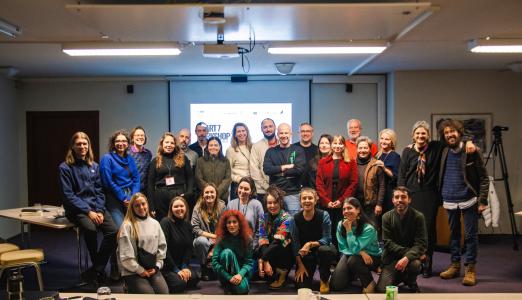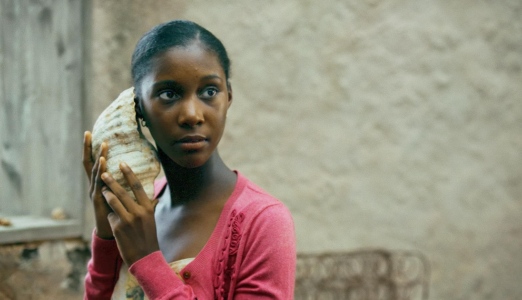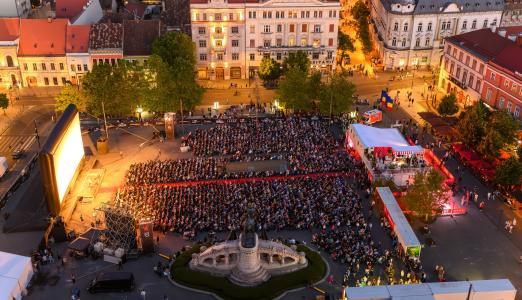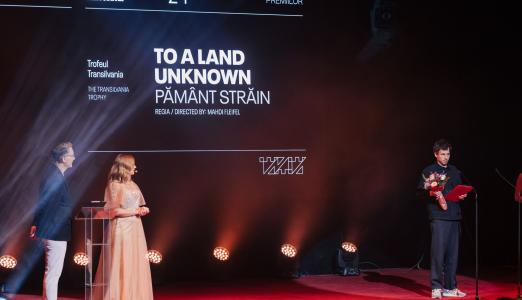Mihai Chirilov: We need more filmmakers pushing boundaries and taking risks

It's been another year of digging through today's ever-growing supply of films to sift and discern the TIFF selection. My colleagues - on the programming team and at similar international festivals - know what that means: a long but exciting process of searching for those gems that will organically round out your line-up, and a deft but frustrating slalom through titles as satisfying as watching paint dry on a museum wall. Plus, as with any Creative Europe-endorsed festival, the aim is a noble and assertive one: to administer a healthy and refreshing dose of European film. This specific angle means that, of all the players in the industry, the curators have the fairest overview, and the inevitably disturbing conclusion is that the reality of recent years is not exactly rosy.
Once the enfant terrible that thumbed its nose at the status quo, European Cinema seems to have morphed now into a film school grad desperately crafting its "Most Socially Aware" acceptance speech. Buried under an avalanche of public funding and regional grants, European cinema is a spoiled brat who churns out paper-thin and hard to sell flicks that make even Nicolas Cage direct-to-video ventures look like cinematic masterpieces. American blockbusters may be shameless explosions of CGI and tired tropes, but at least they're honest about their popcorn-fueled intentions. In Europe it seems so easy to make cinema that only those who don't want to don't. And this sudden obsession with ticking off "woke" bingo cards? Films are more concerned with pandering to a pre-approved list of social issues than crafting compelling stories. Imagine a dystopian Blade Runner reimagined as a recycling PSA, or a gritty Clockwork Orange reduced to a lecture on the evils of nationalism, or the sheer escapism of Derek Jarman’s radical queer films replaced with watered-down virtue signaling. Snoozefest, anyone? Where are the films that take our breath away, that grill our brains and leave our moral compasses spinning?
Now, I'm not saying they've disappeared altogether. Fortunately, there are exceptions (otherwise we wouldn't be doing the festival), but there's just as well the risk of clinging on to them like a lifeline and trotting them out as if they might confirm a rule, when in fact you can see that the emperor is almost naked. As for the socio-political commentary, let me not be misunderstood: it is more necessary than ever and can be effective too. But the best European films always tackled complex issues with wit, imagination, ambiguity, a bit of craziness, and a willingness to question, not simply reinforce, existing narratives. Today, they seem too busy being politically correct or simply boring to even attempt to stimulate critical thinking. Filmmakers seem cautious, self-important or simply in the wrong job. The current trend of checklist filmmaking feels like glorified propaganda, not artistic provocation. It preaches to the converted instead of cleverly recalibrating one’s speech to spark genuine conversation.
We need more edgy and sophisticated works, controversial and sick films that make us squirm in our seats. We need more filmmakers pushing boundaries and taking risks. Diving into the darkness, confronting the messy contradictions of the human experience. Asking difficult questions about faith, morality, the very nature of existence… Just as we need female directors. This crisis in the film industry is pressing, but poorly addressed right from the decision-making stage of project funding, at least that’s my impression. I still believe that diversity in cinema is not about quotas or ideological purity. A noble cause in theory, in need of urgent repair, risks in practice generating more aptly-circumstantial feminist statements than full-fledged, nuanced stories that are relevant in the unhealthily polarizing times we live in. Fortunately, emerging female directors like Carolina Markowicz, Anais Tellenne, Shuchi Talati, Laura Ferres, Vita Drygas, Gabi Șarga and Isabela Ţenț, all of whom play in competitions at TIFF.23, lead me to believe that all is not lost.





